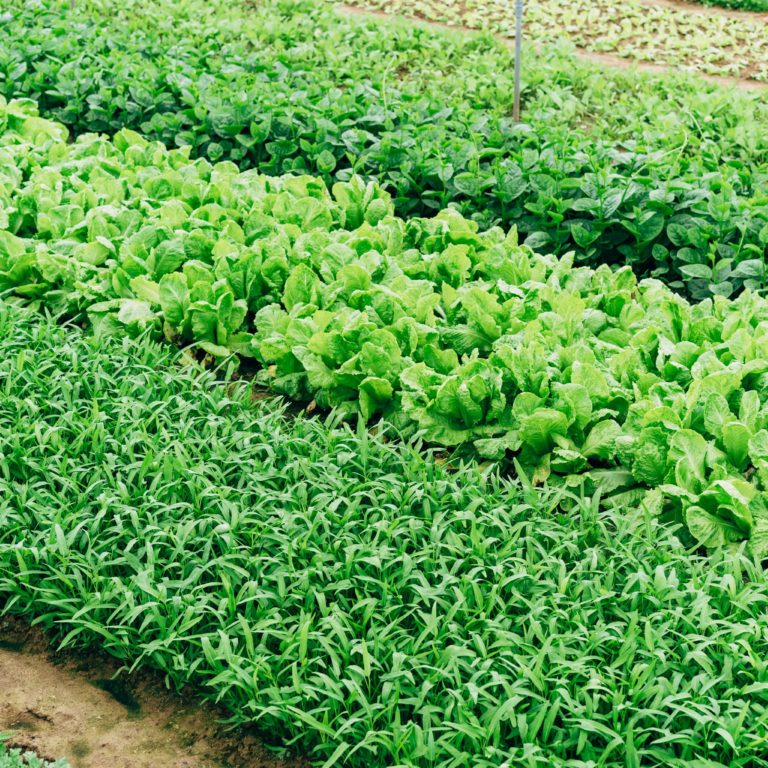Organic Fertilizer Manufacturer: Soils with a lot of organic matter, on the other hand, remain loose and airy, retain moisture and nutrients better, promote the growth of soil organisms, including earthworms, and promote healthy root development
By organic manure, I mean animal manure from chickens, rabbits, small livestock, cows, or horses as well as compost containing animal manure, garden compost, worm compost, straw and hay, and prunings. These materials have to be broken down by soil microbes to release their nutrients and that takes time. This provides long-lasting nutrition and stability, rather than overgrowth. Green manure and allowing crop residues to digest on the soil also belong to organic fertilization. Read about this in our blog from May ‘Recycling via mulching’.

Organic Fertilizer Manufacturer- Commercial
Organic fertilizer granules (commercial fertilizers), on the other hand, are usually made from animal offal and cannot be compared with the above-mentioned organic fertilizer products.
In addition to the many compound organic fertilizer granules that are widely available, straight fertilizers such as bone meal, horn meal and blood meal also fall under this category. This group has very little effect on the improvement of the soil structure.
This also applies to dried cow manure, dried chicken manure, and guano. You might get the impression that dried cow manure is the ideal replacement for farmyard manure, but that is not true. The billions of microorganisms present in fresh manure are irreplaceable and it is these organisms that contribute to a living soil.
Importance of Fertilizers:
Dried cow manure can be regarded as a natural product that gives some extra nutrition to your plants. Guano, on the other hand, contains high NPK values, much too high fertilizer values that our plants do not need at all, so that – just like with chemical fertilizers – a lot is lost and washed out. Proponents will defend this fertilizer because guano is of natural origin, but there is also a comment to make because it does not come from us, so it is also ecologically questionable.
Organic fertilizer granules cannot, therefore, replace the organic fertilizer and can at most be used to fertilize in small quantities to plants that have a greater fertilizer requirement. In my view, there are very few if you start from an active, living soil.
Note: some organic fertilizer granules also contain mineral synthetic fertilizers, which makes it impossible to use them in the organic garden.
Producers make a ready-to-use fertilizer for each specific crop, such as strawberries, ornamental plants, hydrangeas, conifers, etc., so that you can get the impression that you fully meet the needs of the plant. However, never forget that active soil life is the key to successful gardening and non-organic fertilizer granules.
The N, P, K’s of fertilizing products
The three main nutrients that have been identified as being absolutely necessary for plants are nitrogen (N), phosphorus (P), and potassium (K). These three are also known as macronutrients and are the source of the three numbers that are always found on fertilizer bag or box labels.
As I mentioned before, in principle you do not need extra fertilizer granules, but because this is so much bought, I still find it important to explain what these NPK values stand for.
Nitrogen (N)
Nitrogen is responsible for the above-ground vegetative growth of plants and for overall size and vigor. It is probably best known for its ability to make lawns “greener”. That’s because nitrogen is an important part of chlorophyll, the green matter in plants responsible for photosynthesis.
Nitrogen can be added to your soil through a blood meal, which is of animal origin. There is currently no single nitrogen granular fertilizer of vegetable origin available. With too much nitrogen, your plants will grow extremely fast, resulting in long, spindly, weak shoots with dark green leaves. With too little nitrogen, but then it must be extremely low, your plants will slow down or stop growing, with leaves that turn yellow and fall faster than they should.
Phosphorus (P)
Phosphorus promotes healthy growth, strong roots, seed formation, and ripening of fruits, and tuber formation in root vegetables such as celeriac. Natural phosphate and bone meal are sources of phosphorus.
In Belgium and the Netherlands, the soils are very rich in phosphorus due to years of over-fertilization, so that this fertilizer rarely has to be added. Growing green manures such as yellow mustard, lupine, and clover are very useful in making available the phosphorus present in the soil. Incidentally, the absorbability of phosphorus is especially important in young plants.
Potassium (K)
Potassium, also known as potash, is essential for strong plant development and general plant growth. It helps plants to resist disease and fungi. Potassium ensures limited evaporation, which reduces the sensitivity to frost and drought.
Because potassium plays a supporting role, it can be difficult to spot deficiencies. In general, leaves will show blue, yellow, or purple hues with brown flecks or discoloration inside or around the edges. However, too much potassium can also undermine the resistance and general health of the plants. The main straight fertilizer of natural origin containing potassium is Vinasse and wood ashes.

